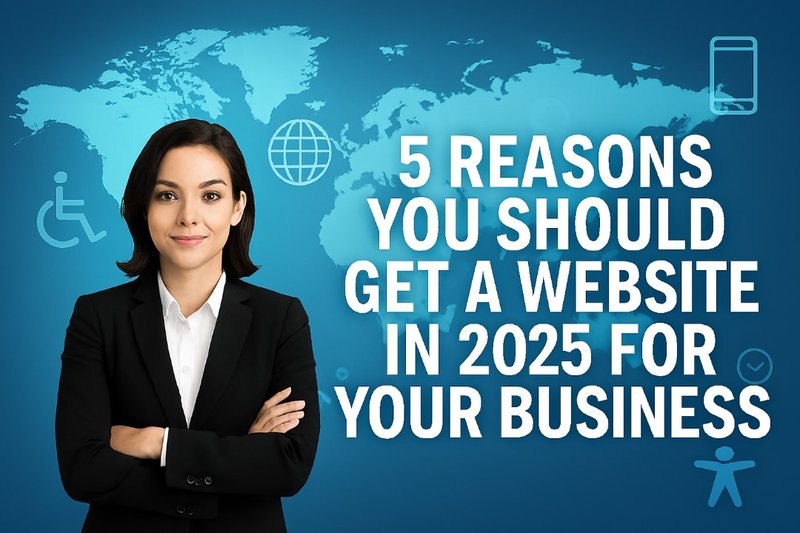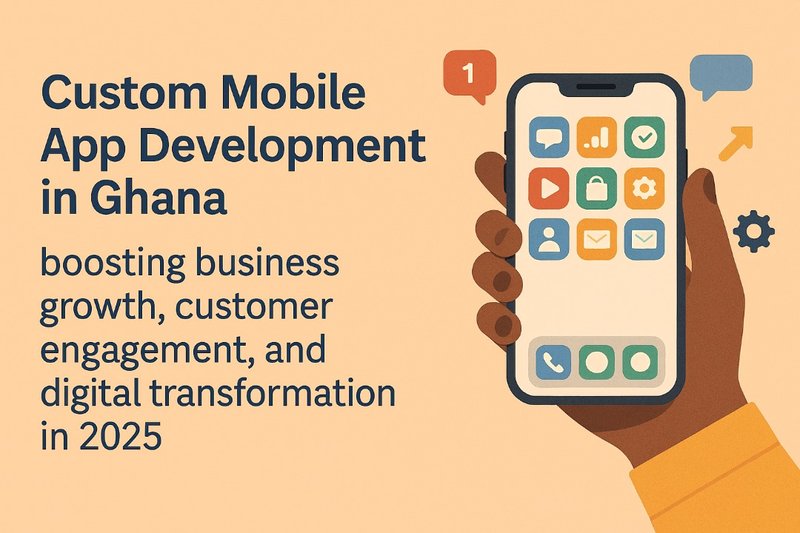Introduction: The world is moving fast. In 2025, technology isn’t just shaping how we connect — it’s rewriting the rules of business. Whether you’re a teacher, entrepreneur, small shop owner, or global brand, your digital presence has become your business card, your office front, and your loudest marketing tool.
Yet, surprisingly, many businesses still don’t have a proper website. Some rely only on social media, while others believe a website is “too expensive” or “not necessary.” The truth? In today’s global economy, not having a website isn’t just a missed opportunity — it’s a serious disadvantage.
If you’re wondering whether it’s worth the effort, here are five powerful reasons why getting a website in 2025 is one of the smartest moves for your business — along with the advantages and disadvantages you should honestly consider.
1. Global Visibility & 24/7 Presence
Imagine your shop is open all day, every day, without you needing to switch the lights on. That’s exactly what a website does for you.
- Advantage: A website gives your business a global stage. Customers in London, Lagos, or Los Angeles can discover you at midnight or midday. You don’t lose opportunities just because your physical store is closed.
- Disadvantage: Maintaining visibility requires regular updates and security checks. A neglected website can quickly become outdated or vulnerable to cyber threats.
👉 The takeaway: The small effort of maintaining your site is far outweighed by the value of being available to customers whenever they need you.
2. Building Trust & Credibility
Think of the last time you searched for a product. Did you trust the business without a website? Probably not.
- Advantage: A professional website builds credibility instantly. Customers see you as legitimate, established, and reliable. It’s often the deciding factor between choosing you or a competitor.
- Disadvantage: A poorly designed website has the opposite effect. Slow pages, spelling errors, or outdated designs can make you look unprofessional.
👉 The lesson here: It’s not just about having a website; it’s about having one that looks professional and feels trustworthy.
3. Expanding Your Market with Inclusivity
In 2025, inclusivity is no longer optional — it’s a business strength. Your website can be the bridge that welcomes everyone, regardless of their background, language, or abilities.
- Advantage: Adding accessibility features (like screen reader support or alt text for images) and offering multilingual content allows you to reach audiences often ignored by competitors. This builds loyalty and respect.
- Disadvantage: Inclusive design may require extra time, planning, and investment. But remember, inclusivity is not just a social responsibility — it opens new markets and builds deeper trust.
👉 Forward-thinking businesses in 2025 are already winning because they design for everyone, not just themselves.
4. Cost-Effective Marketing
Gone are the days when you had to spend thousands on billboards or radio spots. With a website, your marketing is smarter, targeted, and trackable.
- Advantage: A website reduces the need for costly traditional advertising. Combined with SEO and social media, it lets you reach more people at a fraction of the cost.
- Disadvantage: Success doesn’t come overnight. SEO, blogging, and digital ads take consistent effort. Without a strategy, your site may remain invisible despite existing.
👉 Still, unlike one-off ads, your website continues to attract traffic and leads for years if managed properly.
5. Staying Competitive in 2025
Let’s be honest: your competitors are online. The question is, will customers find you or them?
- Advantage: Having a website ensures you’re taken seriously. It signals that you’re future-ready and willing to invest in customer experience.
- Disadvantage: Competition online is fierce. Simply “having a site” isn’t enough — you need to stand out with quality design, useful content, and inclusivity.
👉 The good news? Many businesses still underestimate the power of a professional website, giving you the chance to stand out.
What Makes a Website Professional?
If you’re considering getting one, don’t settle for “just any” website. A professional website has:
- Fast loading speed (nobody waits more than 5 seconds)
- Mobile-first design (since most visitors come from phones)
- Clear navigation (easy menus, visible contact info)
- Consistent branding (colors, fonts, and logos that reflect your business identity)
- Regular updates (fresh content signals that you’re active and relevant)
These details may seem small, but they make the difference between a site that attracts customers and one that drives them away.
Thinking Beyond Yourself: Inclusivity in Web Design
Inclusivity means designing your website with everyone in mind. Here are practical steps to take:
- Provide alt text for images (so visually impaired users can understand your content).
- Ensure good color contrast for readability.
- Add language translation options for global visitors.
- Offer local payment methods so international customers can buy with ease.
This isn’t just about being socially responsible — it’s smart business. When you make people feel included, they reward you with loyalty.
Final Thoughts:
In 2025, a website isn’t just a “nice-to-have” — it’s the foundation of your business growth. The advantages far outweigh the disadvantages, especially if you’re serious about credibility, inclusivity, and long-term success.
🌍 Don’t wait until competitors leave you behind.
👉 Need help building a professional, inclusive website? Contact TechVissionGH today and let’s create something that puts your business on the global stage.
💬 Over to you: What’s the biggest barrier you think stops small businesses from going online? Drop your thoughts in the comment section — your perspective could inspire others!




Comments (2)
Leave a Comment
Best thing to be docus on
thanks for your response!
Best thing to be docus on